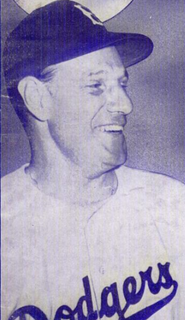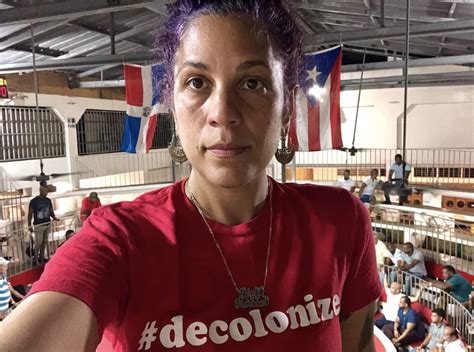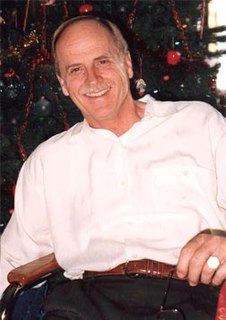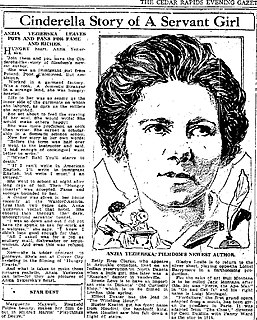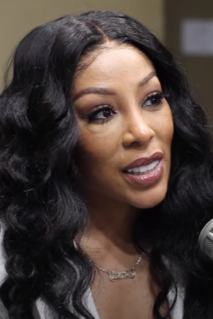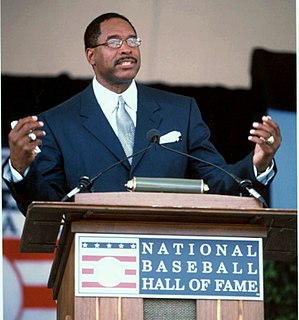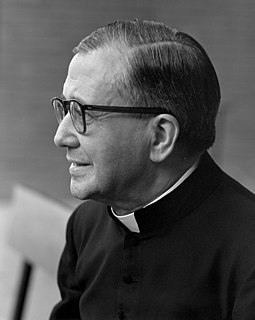A Quote by Leo Durocher
What are we at the park for except to win? I'd trip my mother. I'd help her up, brusher her off, tell her I'm sorry. But mother don't make it to third.
Related Quotes
Her [Eleanor Roosevelt] father was the love of her life. Her father always made her feel wanted, made her feel loved, where her mother made her feel, you know, unloved, judged harshly, never up to par. And she was her father's favorite, and her mother's unfavorite. So her father was the man that she went to for comfort in her imaginings.
Her mother was a Christian Scientist who didn't believe in calling doctors. So when my mother caught whooping cough as a baby, stopped breathing and turned blue, her mother revived her by spanking her on the bottom. She saw life itself as a gift and saw her own survival as precious and a matter of chance.
But her name was Esmé. She was a girl with long, long, red, red hair. Her mother braided it. The flower shop boy stood behind her and held it in his hand. Her mother cut it off and hung it from a chandelier. She was Queen. Mazishta. Her hair was black and her handmaidens dressed it with pearls and silver pins. Her flesh was golden like the desert. Her flesh was pale like cream. Her eyes were blue. Brown.
If I want to read S.J. Perelman's Chicken Inspector No. 23 for the third time instead of some anguished, politically correct saga of a girl growing up in a trailer park in Kingman, Arizona, with an alcoholic mother who makes her straighten her naturally curly hair and won't let her date a Navajo boy or pursue her goal of becoming (naturally) a writer, I will. And I will laugh like a lunatic while doing it.
Her mother died at the age of 29, essentially turning her face to the wall and deciding to die. And so we can only imagine the agony she felt. And Eleanor Roosevelt really wanted to make her mother happier, and - and to make her live, you know, make her want to live. And there's something about, you know, when your mother dies, this sense of abandonment. I think Eleanor Roosevelt had a lifelong fear of abandonment and sense of abandonment after her parents' death.
I've borne the shame of mother while you bought her off with a present and a treat here and there. God knows how hard I tried to civilize her so as not to have to blush with shame when I take her anywhere. I dressed her in the most stylish Paris models, but Delancey Street sticks out from every inch of her. Whenever she opens her mouth, I'm done for. You fellows had your chance to rise in the world because a man is free to go up as high as he can reach up to; but I, with all my style and pep, can't get a man my equal because a girl is always judged by her mother.
I know also another man who married a widow with several children; and when one of the girls had grown into her teens he insisted on marrying her also, having first by some means won her affections. The mother, however, was much opposed to this marriage, and finally gave up her husband entirely to her daughter; and to this very day the daughter bears children to her stepfather, living as wife in the same house with her mother!
When my daughter went to school, her last name was mine. The school insisted that her father's name be added to hers, not her mother's. The fact that the mother kept her in her womb for nine months is forgotten. Women don't have an identity. She has her father's name today and will have her husband's tomorrow.
So your strength is failing you? Why don't you tell your mother about it? ... Mother! Call her with a loud voice. She is listening to you; she sees you in danger, perhaps, and she-your holy mother Mary-offers you, along with the grace of her son, the refuge of her arms, the tenderness of her embrace ... and you will find yourself with added strength for the new battle.
